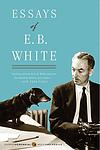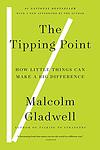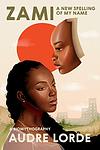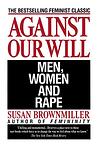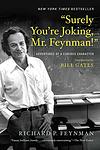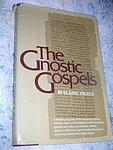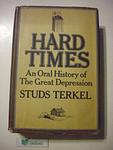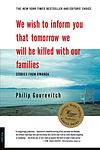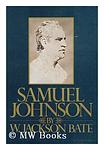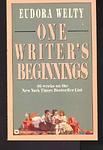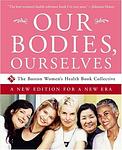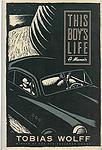The Greatest American "Nonfiction" Books Since 1970
Click to learn how this list is calculated.
This list represents a comprehensive and trusted collection of the greatest books. Developed through a specialized algorithm, it brings together 300 'best of' book lists to form a definitive guide to the world's most acclaimed books. For those interested in how these books are chosen, additional details can be found on the rankings page.
Genres
Countries
Date Range
Reading Statistics
Click the button below to see how many of these books you've read!
Download
If you're interested in downloading this list as a CSV file for use in a spreadsheet application, you can easily do so by clicking the button below. Please note that to ensure a manageable file size and faster download, the CSV will include details for only the first 500 books.
Download-
26. Blue Highways: A Journey into America by William Least Heat-Moon
This travel memoir follows the author's journey through the backroads of the United States, which he refers to as "Blue Highways" on maps. After losing his job and separating from his wife, he embarks on a 14,000-mile trip, steering clear of cities and interstates to explore small towns and meet their inhabitants. The narrative offers a poignant and introspective exploration of America's landscapes, history, and diverse cultures, providing a unique perspective on the country's lesser-known regions.
-
27. Essays of E. B. White by E. B. White
This book is a collection of essays written by a renowned American writer, offering a wide range of topics including nature, politics, literature, and personal experiences. The author's distinct style of writing, characterized by wit, humor, and profound insight, is evident throughout the book. The essays serve as a reflection of the author's thoughts and observations about life, society, and the world, providing readers with an intimate look into his mind and perspective.
-
28. The Tipping Point by Malcolm Gladwell
This book explores the concept of "tipping points," or the specific moment when an idea, trend, or social behavior crosses a threshold and spreads like wildfire. It delves into the science behind epidemics, both in terms of diseases and ideas, and dissects the factors that can cause a sudden shift in public consciousness. The author uses various case studies, from the sudden popularity of certain shoes to the decrease in New York City's crime rate, to illustrate these concepts.
-
29. Zami: A New Spelling of My Name by Audre Lorde
This book is a biomythography, blending history, biography, and myth, of a young, black, lesbian woman growing up in 1950s Harlem. The narrative explores her early life, including her relationship with her immigrant parents, her sexual awakening, and her struggle to define her identity in a time of intense racial and homophobic prejudice. The protagonist's journey is marked by a series of women who shape her consciousness and her understanding of herself, leading her towards activism and writing.
-
30. A Supposedly Fun Thing I'll Never Do Again by David Foster Wallace
"A Supposedly Fun Thing I'll Never Do Again" is a collection of seven essays that blends humor, insight, and philosophical pondering. The author explores a wide range of topics, from the impact of television on contemporary literature to the despair of the American cruise industry, and even the nature of David Lynch's films. The book is a brilliant showcase of the author's unique ability to see the extraordinary in the ordinary, all while using his sharp wit and expansive intellect to explore the complexities of modern life.
-
31. On Writing by Stephen King
This book is a memoir that serves as a guide for aspiring writers. The author shares his journey as a writer, his struggles, and his successes, while also providing practical advice on the craft of writing. It delves into the mechanics of writing, the importance of reading, the role of an editor, and the perseverance required to be a successful writer. The book also discusses the author's near-fatal accident and how it impacted his writing process, emphasizing the importance of resilience and dedication to the craft.
-
32. The Habit of Being by Flannery O'Connor
"The Habit of Being" is a collection of personal correspondence by a renowned southern writer, offering a profound insight into her private life, thoughts, and creative processes. These letters, written over a span of two decades, reveal her struggle with lupus, her strong Catholic faith, her sharp wit, and her dedication to writing. The book also provides a glimpse of her relationships with literary contemporaries and her insightful thoughts on contemporary issues, literature, and religion.
-
33. Against Our Will by Susan Brownmiller
This book is a comprehensive study of rape throughout history, examining its use as a tool of domination and control, and its societal implications. The author argues that rape is not about sex but about power, and that it is a pervasive issue deeply ingrained in society's patriarchal structures. The book also explores the legal and cultural attitudes towards rape, highlighting the need for change in societal perception and response to this crime.
-
34. Me Talk Pretty One Day by David Sedaris
This book is a collection of humorous, autobiographical essays that explore the author's experiences and observations in his life. The first part of the book focuses on his upbringing in North Carolina, his Greek heritage, his relationship with his eccentric family, and his early jobs. The second part of the book details his move to Normandy, France, his struggle to learn the French language, and his observations of French culture. The author's self-deprecating humor and sharp wit provide a satirical view of his life's journey.
-
35. "Surely You're Joking, Mr. Feynman!": Adventures of a Curious Character by Richard P. Feynman
The book is an autobiography of a Nobel Prize-winning physicist, filled with humorous and insightful anecdotes from his life. It highlights his adventures from his early years, working on the Manhattan Project, to his teaching years at Caltech. The book showcases his unconventional thought process, his insatiable curiosity, and his passion for science, painting a vivid picture of a man who never stopped questioning and learning.
-
36. The Gnostic Gospels by Elaine Pagels
This book explores the findings of the Nag Hammadi library, a collection of gnostic texts discovered in 1945. The author examines these texts, which were excluded from the canonical Bible, and discusses their implications for our understanding of early Christianity. The book delves into the diversity of beliefs in early Christian communities, the role of women in these groups, and the political and theological reasons behind the formation of the orthodox Christian canon.
-
37. Cosmos by Carl Sagan
This landmark book is a majestic cosmic tour that delves into the nature of the universe, exploring a vast array of topics including the science of space and time, the origins of life, and the human quest for understanding. It intertwines science and philosophy, taking readers on a journey through the history of astronomy, the development of the scientific method, and the incredible vastness of the cosmos. The narrative is infused with a sense of wonder and awe at the complexity and beauty of the universe, as well as a thoughtful consideration of the place of humanity within it. The work is a celebration of human curiosity and a powerful advocate for the importance of science and education in helping us to understand our world and our place in the cosmos.
-
38. Hard Times: An Oral History of the Great Depression by Studs Terkel
This book is a compelling oral history of the Great Depression, featuring a collection of interviews from a diverse range of individuals who lived through the era. The interviewees include both the ordinary people and famous figures of the time, from businessmen and politicians to artists and criminals. The book provides a vivid, first-hand account of the economic hardship, social changes, and emotional struggles experienced by people during the 1930s, offering a unique perspective on this significant period in American history.
-
39. The Color of Water: A Black Man's Tribute to His White Mother by James McBride
This book is a moving memoir that tells the story of a biracial man raised in a housing project in Brooklyn by his white, Jewish mother. The narrative alternates between the author's perspective and his mother's, providing a nuanced view of issues related to race, religion, and identity. The author's mother, a Polish immigrant, married a black man in the 1940s and raised twelve children in the midst of poverty and racial tension. Despite the hardships, she instilled in her children the importance of education and self-reliance. The book is a tribute to the strength, resilience, and love of this remarkable woman.
-
40. The Road Less Travelled by M. Scott Peck
This self-help book explores the concept that life is difficult and filled with problems, but we can overcome these issues through discipline, love, and spiritual growth. It encourages readers to confront their personal problems head-on, rather than avoiding them, and to accept responsibility for their actions. The book also delves into the nature of love, suggesting it is less about feelings and more about the act of will. Finally, it discusses the importance of spiritual growth and understanding in achieving a fulfilled life.
-
41. The Immortal Life of Henrietta Lacks by Rebecca Skloot
The book tells the story of Henrietta Lacks, a poor African American tobacco farmer whose cells, taken without her knowledge in 1951, became one of the most important tools in medicine, vital for developing the polio vaccine, cloning, gene mapping, and more. Henrietta's cells have been bought and sold by the billions, yet she remains virtually unknown, and her family can't afford health insurance. The book explores the collision between ethics, race, and medicine; of scientific discovery and faith healing; and of a daughter consumed with questions about the mother she never knew.
-
42. We Wish to Inform You That Tomorrow We Will Be Killed With Our Families: Stories from Rwanda by Philip Gourevitch
This book is a chilling account of the Rwandan genocide that took place in 1994, where an estimated 800,000 to 1 million Tutsis and moderate Hutus were systematically murdered within a span of 100 days. The author provides a detailed narrative based on interviews with survivors and perpetrators, shedding light on the horrifying events, the international community's failure to intervene, and the aftermath of the genocide. The book serves as a powerful critique of political indifference and a poignant exploration of the depths of human brutality.
-
43. The Journalist and the Murderer by Janet Malcolm
The book is a gripping exploration of the uneasy relationship between journalists and their subjects. It delves into the ethical dilemmas faced by journalists when they become too involved with their subjects. The narrative centers around a lawsuit between a convicted murderer and the author who wrote about his case, revealing the blurred lines between objectivity and subjectivity in journalism. The book also raises questions about the morality and responsibility of the journalistic profession.
-
44. Roll, Jordan, Roll by Eugene Genovese
"Roll, Jordan, Roll" is a comprehensive exploration of slavery in the United States, specifically focusing on the complex relationships between slaves and their masters. The book examines how slaves managed to preserve their culture, humanity and dignity, while also highlighting the paradoxical nature of a system where slave owners were dependent on their slaves for their livelihoods. It delves into the ways in which slaves resisted their oppression, and the strategies they employed to survive and create their own communities within the confines of the brutal institution of slavery.
-
45. Samuel Johnson by Walter Jackson Bate
This biography provides an in-depth look into the life of Samuel Johnson, an 18th-century English writer who contributed greatly to English literature as a poet, essayist, moralist, literary critic, biographer, and lexicographer. The book explores Johnson's struggles with depression, fear of death, and various physical ailments, as well as his intellectual prowess and his impact on literature. It also delves into his relationships with other notable figures of his time, offering a comprehensive portrait of a complex and influential man.
-
46. One Writer's Beginnings by Eudora Welty
This memoir explores the author's early life in Mississippi and her journey towards becoming a writer. The narrative is divided into three sections: Listening, Learning to See, and Finding a Voice, which respectively discuss the author's childhood memories, her education and love for reading, and her growth as a writer. The book delves into the author's personal experiences, her family history, and the influence of the Southern United States on her work.
-
47. The Warmth Of Other Suns by Isabel Wilkerson
"The Warmth of Other Suns" is a powerful and deeply moving narrative that chronicles the Great Migration, a significant event in American history that saw millions of African Americans leave the South in search of better opportunities and freedom from racial oppression. Through the compelling stories of three individuals, the book explores the challenges, triumphs, and sacrifices made by these courageous migrants as they embarked on a journey to find a new life in the North and West, ultimately reshaping the social and cultural landscape of America.
-
48. Our Bodies, Ourselves by Unknown
This book is a comprehensive guide to women's health and sexuality, covering a wide range of topics from puberty to menopause. It emphasizes the importance of self-care and provides practical information on topics such as reproductive health, sexual orientation, body image, mental health, and domestic violence. The book is designed to empower women to make informed decisions about their health and well-being, and it encourages them to take control of their own bodies. It also includes personal stories and experiences from diverse women, reflecting a wide range of perspectives and experiences.
-
49. The Devil In The White City by Erik Larson
This book intertwines the true tales of two men during the 1893 Chicago World's Fair: Daniel H. Burnham, the architect responsible for the fair's construction, and H.H. Holmes, a serial killer masquerading as a charming doctor. The narrative alternates between the story of Burnham, his challenges and successes in building the fair, and the chilling story of Holmes, who used the fair to lure his victims to their death. It's a vivid portrayal of the Gilded Age and a chilling exploration of one of America's first known serial killers.
-
50. This Boy's Life by Tobias Wolff
This memoir explores the author's challenging childhood as he moves across the country with his divorced mother, fleeing an abusive relationship and seeking a better life. The young boy struggles with his identity, often resorting to lies and deceit to create a more favorable image of himself. As he navigates adolescence in a small town in the 1950s, he contends with a violent stepfather, school troubles, and his own rebellious nature. Despite the adversity, he maintains a sense of hope and resilience, offering a compelling portrait of a young man coming of age in post-war America.
Reading Statistics
Click the button below to see how many of these books you've read!
Download
If you're interested in downloading this list as a CSV file for use in a spreadsheet application, you can easily do so by clicking the button below. Please note that to ensure a manageable file size and faster download, the CSV will include details for only the first 500 books.
Download
